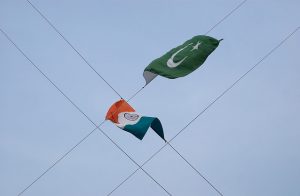A March 12 Indian Express article has provided interesting details about Pakistan’s expectations from the February 25 ceasefire and the country’s relationship with India going forward. Based on “authoritative sources in Pakistan who did not wish to be identified,” the newspaper has reported that Islamabad expects New Delhi to restore Jammu and Kashmir’s statehood as a starting point for a dialogue.
“This, they said, would then facilitate ‘a conversation’ that would include ‘Kashmiri voices front and center’ on the way forward and open up space potentially for discussions on other bilateral issues,” the newspaper wrote. The report’s sources also noted that the ceasefire was “purely for tactical reasons” – given that the continuing cross-Line of Control firing was failing to make any material difference to the extant situation – and that to link it to a bigger “gland plan” was an erroneous conclusion.
Somewhat contradicting this statement, the Express’ sources did note that the entire Pakistani national security establishment, including the civil and military leadership, backed the ceasefire especially given its potential to lead to “wider engagement” with India, in turn allowing Pakistan to focus on “economic stability,” which has become the latest buzzword in Pakistan’s foreign policy and security strategy.
To be sure, there is no immediate contradiction between Pakistan’s demand that Jammu and Kashmir’s statehood be reinstated, and the Modi government’s position on the matter. In the past, Indian Home Minister Amit Shah has gone on record stating that the centrally-controlled territory carved out of the erstwhile state of Jammu and Kashmir in August 2019 “will be accorded the status at an appropriate time.” Interestingly, the Pakistani sources quoted in the Indian Express story did not demand the reinstatement of Jammu and Kashmir’s special autonomous status through Article 370 of the Indian constitution, suggesting a desire to match their asks with likely gives from the Modi government.
Two additional observations are in order about the Indian Express story. First, it forms the latest in a series of Indian media stories quoting government sources about the ceasefire, one of which was categorically contradicted by the Pakistan government soon after it was published. The Hindustan Times on February 25 had published a story that claimed that the ceasefire was the result of months-long back channel talks between Indian National Security Advisor Ajit Doval and his Pakistani counterpart Moeed Yusuf — a claim that Yusuf refuted in a tweet thread within hours of the story’s publication. (The Hindustan Times claims that Yusuf had backtracked on his own earlier confirmation at a briefing for reporters that the ceasefire was the result of a sustained diplomatic engagement.)
The unmistakable impression from the series of reports based on anonymous sources, both from India as well as Pakistan, is that both sides are quite keen to explain their position to each other’s public but in a way that can be disowned as and when needed. Curiously enough, in an interview to an Indian media outlet October last year – which generated a fair bit of commentary here in New Delhi – Yusuf had suggested that India was interested in talks with Pakistan. At that time, some had noted that Yusuf’s very public suggestion to this effect would have been enough to scuttle its chances given the Modi government’s public position on Pakistan.
The second observation is about an exceedingly odd aspect of the February 25 India-Pakistan joint statement following a call between senior army officers from both sides. To be sure, this was not the first time both sides issued a joint statement through which they recommitted themselves to the 2003 ceasefire – in distinction to identically-worded individual statements, which was the case in 2018. In 2013, a joint statement to that effect was also issued, even though the 2003 ceasefire agreement itself remains informal, with no written commitment accepted by both. (Interestingly, the Pakistan military did not post the February 25 statement on its website as a joint statement, unlike India.)
That said, the February 25 statement noted, “In the interest of achieving mutually beneficial and sustainable peace along the borders, the two DGs[-]MO [director generals of military operations] agreed to address each other’s core issues and concerns which have propensity to disturb peace and lead to violence.” As some analysts had already noted after the statement was issued, the commitment to “address each other’s core issues and concerns” is what gave it an interesting color, given that Pakistan’s core concern (settlement of the Kashmir dispute according to old United Nations Security Council resolutions and the right of Kashmiris to self-determination) would be fundamentally unacceptable to India, irrespective of the party in power in New Delhi. It is therefore unclear what that specific phrasing meant, assuming that it was cleared by both sides at a high, perhaps political, level.
So, to return to the March 12 Indian Express article: While officially both India and Pakistan may be playing down the importance of the February 25 ceasefire recommitment, there is little doubt that something fundamentally new may be afoot this time around.
Join us at The Diplomat webinar on the India-Pakistan ceasefire announcement on March 15, 8 a.m. EST as I discuss these issues and more with the Brookings Institution’s Dr. Madiha Afzal, Wilson Center’s Michael Kugelman, and Stanford University’s Dr. Asfandyar Mir.

































